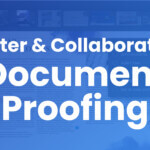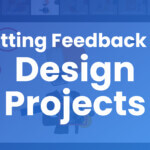Have you ever sat down to work on a task and suddenly found yourself scrolling through your latest social feed? We’ve all been there.
According to a study by Johann Hari, college students in 2022 focus on a task for an average of 65 seconds. Office workers can focus for only three minutes before being pulled away by distractions such as questions from colleagues and notifications.
So, why are we facing a crisis of lost attention? And what can you do to boost your focus for better productivity?
The Distracted Mind
If you’re wondering how to focus on work tasks and get into a flow of better productivity, you’re not alone.
98% of workers say they are interrupted multiple times during their workday. Distractions take the form of chatty co-workers, pointless meetings, hunger, stress, clutter, emails, and task overload. In addition, 50% of American workers say they’re distracted by their own phones while working. Another study found that 44% of all interruptions were not caused by external sources – but rather self-inflicted distractions.
The combination of hybrid work environments and hyperconnectivity makes it harder to focus than ever. We’re constantly thinking about what’s going on online, what we’re missing out on (Hello, FOMO), and being pulled towards that online store through targeted ads.
After suffering a distraction at work, it can take over 23 minutes to regain focus on a task. Add that to the 58 (or more) times we check our phones daily, and that’s potentially hours of lost productivity.
These distractions lead to twice as many errors and lower productivity for employees and their teams. And the factors that cause us to be distracted at work are only becoming more prevalent.
Note that not all lack of focus is due to bad habits or the distractions of life and technology. About 4-5% of adults in the US have Attention Deficit (Hyperactivity) Disorder – and not all of them are diagnosed. Other medical conditions such as anxiety and depression can also negatively affect focus.

Concentration Capabilities and Limits
Focusing on a singular task for extended periods of time isn’t easy.
One culprit could be the cocktail of how the brain functions and our hectic distracted lifestyles. Neurologically, some researchers believe humans are limited to 1-2 conscious thoughts at a time (levels of subconscious thoughts are a whole other – and disputed – thing).
Despite our natural limitations, we tend to fool ourselves into thinking we can do it all at once. We try to simultaneously sift through a multitude of social media, check the news every hour or so, respond within minutes to Slack messages, answer work emails at all hours, and manage a social life.
We simply cannot do it. We are only built with so much cognitive capacity.
Earl K. Miller, one of the leading researchers on neuroscience and memory, has shared his dislike for “multi-tasking” culture. While we may think that tackling multiple tasks at once gets things done faster, in reality, we are only slowing down our ability to focus. And without focus, our productivity quickly evaporates.
A Focused Flow and Productivity
Why does focus matter for productivity? With more focus, you can discover a range of improvements in your work and personal life.
- Decision Making: Deeper focus helps you hone in on choices and make better, more informed, and thoughtful decisions.
- Knowledge and Efficiency: With focus, you can absorb more information. Not to mention that getting more work done in less time leaves you with more hours for picking up a book or pursuing other mind-expanding hobbies.
- Energy: Cultivating focus at work inevitably helps you get more done by putting more energy into the task while avoiding distractions that add hours to your (and your team’s) workflow.
- Quality: By focussing your attention on the task at hand with fewer obstacles, you can produce higher quality results and make fewer mistakes than if you were distracted every three minutes.

Finding Focus: Tips for Better Focus
Getting to a state of uninterrupted concentration sometimes requires actively pushing your cognitive capabilities past their usual limits. It’s worth it, though. Not only will finding better focus give you more time to log off and live your life – your team or clients will benefit from faster and more productive workflows.
Here are a few ways to achieve better focus and achieve greater productivity.
1. Prioritize
Prioritize your work in a way that works for you. Some workers thrive by tackling the hardest tasks first, while others prefer working their way up to the biggest challenges. Some research, however, shows that addressing harder work first helps ensure you have enough cognitive energy to focus and get it done efficiently.
Of course, you may also have to consider the limitations of collaborative projects and colleagues’ schedules. When that’s the case, take the time to collaborate with a shared calendar or agenda to manage tasks.
Regardless of your approach, prioritization of your daily schedule is a necessary way to eliminate the shallow work (tasks that still require time and attention but are not necessarily a priority in your larger goals) that’s eating up too much of your time.
2. Be Intentional
When organizing your work schedule, try to put intentionality at the center of your priorities. A good strategy for this is focusing on ONE thing at a time and finding meaning in that task.
Focus is sometimes rooted in authentically finding joy in what you’re doing – whether from intrinsic passion or the fulfillment of achieving something challenging. That’s partly because distraction-free concentration isn’t necessarily achievable without mindfulness and intent.
Rather than spending more time than necessary on things you don’t enjoy, put that mental energy and effort into the things you enjoy doing and delegate when you can. Tasks that bring joy are more conducive to focus.
Another tactic for boosting intentionality is setting up your workspace in a way that’s conducive to your flow – whether that means eliminating clutter or filling it with things that help you concentrate.
3. Challenge Yourself
A great way to get into a focused state is to work at the edge of your abilities. Add a few meters each day to your morning run, you’ll eventually (in theory) be finishing a marathon. If you run the same distance each day, it’s unlikely you’ll ever feel challenged to improve – or even continue!
Rather than immersing yourself in tasks the same way time and time again, work on upping your limits and skills regularly.
Stepping past your comfort zone can lead to new experiences and knowledge that can benefit your work. Pushing your own limits – whether it’s in stretches of focus or in daunting tasks – will help you find more fulfillment and enjoyment in your work.
4. Log Off
An important factor in finding focus at work is stepping away from the screen when your work is done. Everyone needs that time to decompress after giving energy to a task. Giving yourself time to reset helps you to utilize your on-the-clock hours more efficiently.
Though the pressure to answer messages immediately is on, constant connection is not sustainable. In France, workers fought for the “right to disconnect”, allowing them to be 100% offline during off-work hours.
Set yourself as “Away”. Enjoy your evening of family time or your favorite video games so that you can devote 100% of your concentration to work tasks when the time calls for it.
5. Reduce Stress
Stress has many negative effects on the body – including a direct link to exhaustion which can lead to cognitive impairment. When your mind isn’t working at full capacity, you can’t focus and be productive.
Start by identifying stress triggers that are impeding your energy. These can be different for everyone. Some common stressors include:
- Too much pressure to succeed
- Financial burdens
- Big changes or shifts in life
- Overwhelming responsibilities
If you think that stress and burnout are contributing to your underperforming productivity, there are many resources to help you address the causes of chronic stress. You may also wish to talk to your doctor to get more information on options.
6. Fuel Yourself
Focus can require a lot of energy. To perform at your peak, your body has to be on board. That means keeping up with sleep, diet, and exercises that work for you.
Aim to fuel your body with what it needs to support the strain of pushing your cognitive abilities to their limits for focus and higher productivity.
Food is a good place to start. Harvard research determined that foods that support the heart are the best “brain foods”. Try incorporating leafy greens, fatty fish, berries, and walnuts into your diet.
Java enthusiasts will also be happy to know that The Journal of Nutrition found that your morning coffee could potentially promote increased brain function. Caffeine does have different effects for everyone, of course, so monitor your intake accordingly.
We can also say with certainty that creativity is a side effect of regular exercise and movement.
7. Tech Solutions
Part of prioritizing, eliminating distractions, and increasing productivity relies on our ability to work collaboratively. A key solution in collaborative work is using intuitive tech solutions that enable focus.
Software and technology that allows us to keep projects on track are essential in creating an uninterrupted experience.
Follow the FLOW (trademark pending) strategy on using tools for better focus.
- Focus: Apps such as Serene, RescueTime, and Freedom help block distractions and ensure you’re focusing on meaningful tasks. Or try a site blocker like BlockSite or Google’s Limit tool to remove distractions while working.
- Limit: Know your cognitive limits and push past them with productivity tools like Loop, HabitTracker, and Mindmesh.
- Organization: Project management tools like Trello, Asana, and Monday help you organize tasks and stay connected with your team.
- Workflow: Creative workflow and online proofing solutions like ReviewStudio, can help you stay on track and keep creative projects flowing.
Apps and playlists with white noise or relaxing sounds can also be great tools for productive focus. A study by Vaughn College even found that the beats and low hum of lofi hiphop music can positively benefit the front lobe of the brain for better study performance.
Finding the right scheduling app, habit tracker, productivity tool, or to-do list platform can take some trial and error, but it’s well worth the results of better time management and collaborative organization.
How to Focus for Productivity
With distractions coming at us from every angle, it can be hard to focus. Concentrating on individual tasks for stretches of time is a challenge we all must face.
Healing our attention span isn’t an easy task. The world – and our own brains – are working against us. But finding strategies for better focus is the first step towards more focused work and higher productivity.






